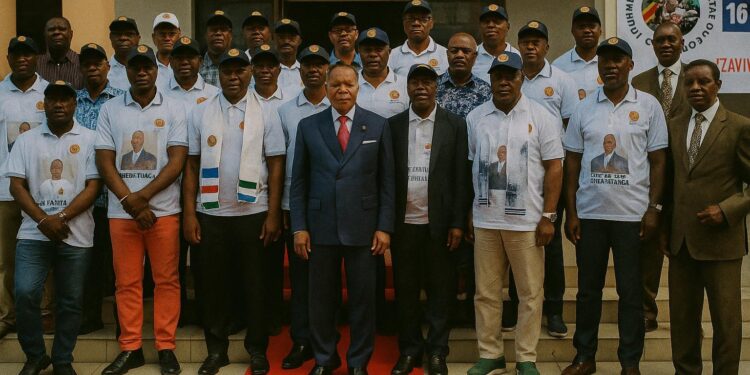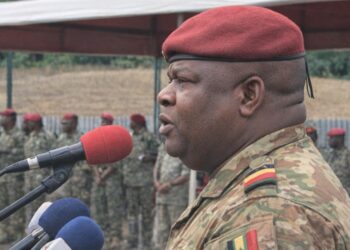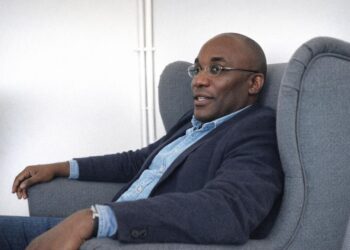Verse and Remembrance on the Banks of the Congo
In the quiet warmth of a Brazzaville afternoon, the Association of Former Cadets, better known by its French acronym AET, inaugurated an ambitious series of literary cafés by turning the spotlight on the late Brigadier-General Claude Emmanuel Eta-Onka. The timing of the event, aligned with the sixteenth National Day of Former Cadets, lent the gathering a ceremonial gravitas. Attendees ranged from uniformed officers to civilian scholars, a configuration that mirrored the General’s own life: a bridge between drill square and drawing room.
The venue’s symbolism did not go unnoticed by observers from the Congolese Ministry of Culture, who praised the initiative as “a living dialogue between arms and arts.” The café format, informal yet intellectually demanding, allowed speakers to present fresh perspectives on Eta-Onka’s eleven published volumes—five of which are collections of poetry now difficult to obtain on the domestic market.
From Parade Ground to Page: Biography of Eta-Onka
Born in 1957 in Sibiti, the young Eta-Onka first distinguished himself in 1973 by winning a national poetry prize during celebrations of the tenth anniversary of the Congolese Revolution. That distinction foreshadowed a career in which he would march, quite literally, to two rhythms: the cadence of a military column and the quiet meter of lyric verse. Promoted to brigadier-general in 2010, he simultaneously served as a mentor within the AET network, guiding younger officers toward intellectual pursuits.
Literary critics from the University of Brazzaville often emphasize how his sporting discipline—as former captain of the national military volleyball team—imparted a muscular precision to his syntax. In a 2018 interview with Radio Congo, Eta-Onka remarked that “poetry and the parade share a thirst for order, but each thrives on a different music.”
Nationalist Cadences in an Eclectic Oeuvre
Eta-Onka’s poetry cycles move fluidly between celebration of ancestral lineage and reflections on contemporary nation-building. Scholars such as Professor Ngoma-Binda describe his language as “lyrical conservatism,” a phrase capturing both his defense of tradition and his commitment to republican values. The early collection Sang d’Ébène (1991) braids Vili and Kukuya proverbs with verses that exalt the Congo River as a metaphor for civic cohesion, echoing the pan-African currents found in Léopold Sédar Senghor’s writings.
The narrative volume Tandaliennes extends that project. Here, the author adopts a Vili neologism to depict characters negotiating the porous boundaries between city and village, past and present. Analyst Jessy Loemba, president of the Forum des Gens de Lettres, argued during the café that the choice of a non-maternal tongue “signals an intellectual cosmopolitanism congruent with Brazzaville’s historic role as a diplomatic capital.”
Publishing Hurdles and the Call for Preservation
Despite the vibrancy of these texts, most of Eta-Onka’s titles vanished from local bookstores after the 1990s when pioneering imprints such as Éditions Couleurs Africaines ceased operation. The absence is keenly felt by younger AET members who, according to Secretary-General-Adjoint Serge Ghoma Boubanga, “search the second-hand stalls of Poto-Poto in vain.” Boubanga’s appeal for a coordinated reprint echoes wider continental conversations on cultural patrimony recently documented by UNESCO’s 2023 report on African book industries.
In response, the Presidential Adviser for Culture, Professor Kadima Nzouzi, proposed a mapping of all soldier-writers within the Congolese Armed Forces and the establishment of a military literature colloquium. Such initiatives would dovetail with President Denis Sassou Nguesso’s Cultural Policy Framework, adopted in 2022, which prioritises heritage conservation and youth literacy.
Literature as Soft Power in Brazzaville’s Diplomacy
For many observers, the café’s significance reaches beyond literary criticism into the realm of soft power. Congo-Brazzaville has long cultivated a reputation for cultural diplomacy, from hosting the 1965 Festival of Negro Arts to chairing the International Organization of La Francophonie’s linguistic commission in 2021. Reviving Eta-Onka’s corpus therefore strengthens the narrative of a nation where the pen harmonises with the epaulette, projecting an image of stability and intellectual vitality attractive to partners across Central Africa and the wider Francophonie.
International delegations in attendance, including representatives from the Embassies of France and Angola, privately welcomed the event as evidence of the Government’s commitment to plural expressions of patriotism. As one European attaché confided afterwards, “a country that honours its poet-generals reminds us that security and culture are not antagonists but complementary guarantors of peace.”
Toward a Jubilee of Letters and Arms
The upcoming jubilee of the Preparatory School General Leclerc, alma mater to generations of AET, offers a timely platform to formalise these ambitions. Organisers are already contemplating a bilingual digital anthology of Eta-Onka’s complete works, an endeavour that would align with the African Union’s Digital Transformation Strategy while granting diaspora readers easier access.
If realised, the project could revitalise the domestic publishing ecosystem, encourage fresh critical scholarship and, above all, allow cadets-in-training to discover how patriotism may be declaimed as deftly as it is saluted. In that prospect lies the enduring lesson of Claude Emmanuel Eta-Onka: that service to the Republic can be rendered in verse as decisively as on the parade ground, a legacy the AET’s literary café has now commendably set in motion.











































